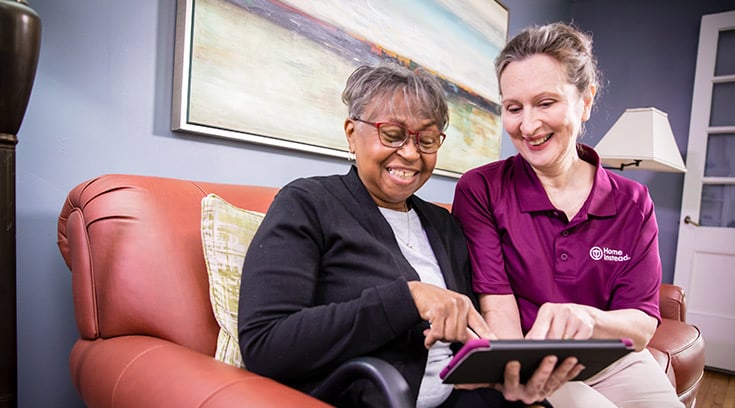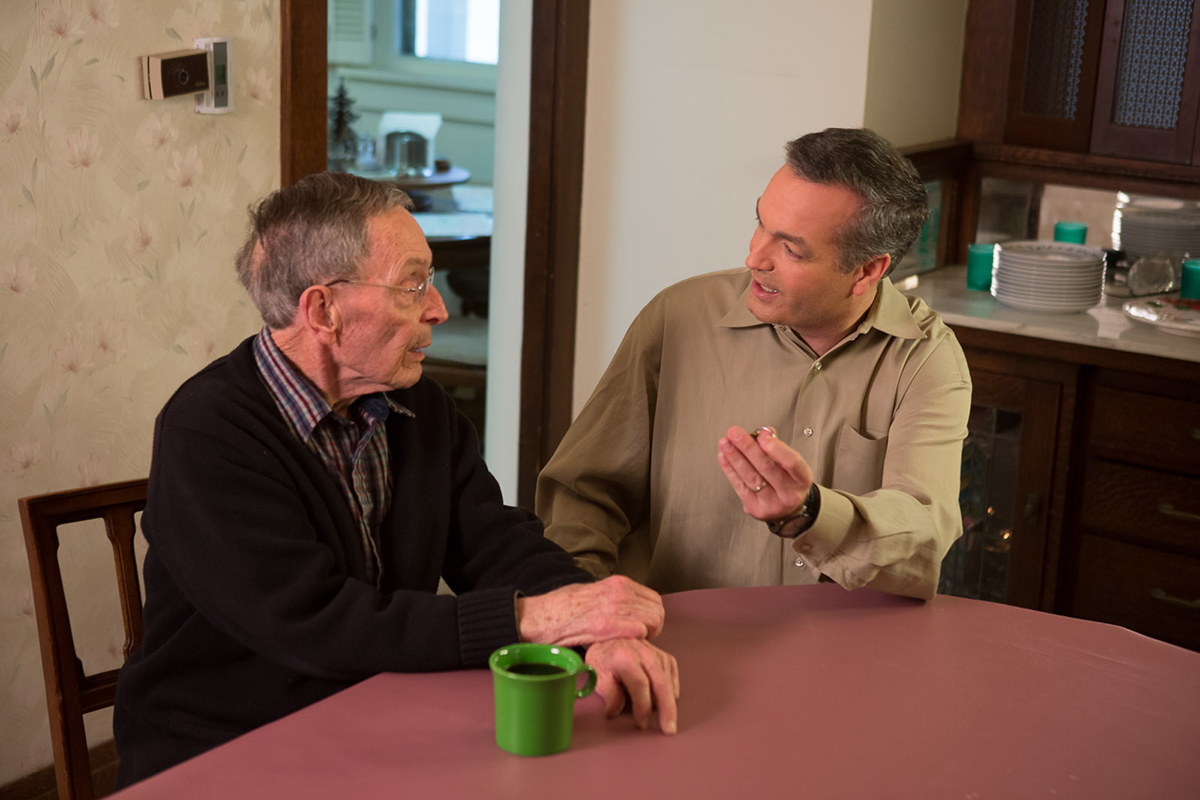It can be difficult to see your once mild-mannered mother snap at you. Or to have your longtime spouse, so full of love and joy, get angry for seemingly no reason.
A dementia diagnosis causes changes in the brain that may be responsible for a loved one’s uncharacteristic behaviour. One common dementia-related behaviour is anger and/or aggression, which is oftentimes hard for family members and caregivers to cope with.
The first step in dealing with this dementia-related behaviour is understanding that the person is not acting this way on purpose. The next step is trying to identify the reasons for the behaviour.
Factors of Aggressive Behaviour
Aggressive behaviours may be verbal or physical and can occur suddenly with no apparent reason.
Many things can play a part in the behaviour including physical discomfort or pain; environmental factors; frustration; or poor communication. It’s important to assess what is contributing to the situation.
For instance, when it comes to communication consider asking yourself these questions:
- Are the instructions simple and easy to understand?
- Am I asking too many questions or making too many statements at once?
- Am I giving the person enough time to respond?
- Is the person picking up on my own stress or irritability?
Possible Causes of Anger
Triggers for aggressive behaviour for someone living with dementia fall into four categories: emotional, social, physical and environmental.
Emotional feelings that may cause an older adult to manifest anger include: feeling bored, sad, tired, embarrassed, affectionate, supported, stressed, afraid, frustrated, valued, lacking trust, unsafe.
Social triggers include: an inability to talk; feeling left out; lacking relationships; a struggle to accept change; or feeling isolated, bored, or lonely.
Physical causes should also be considered. For instance, is the individual overheated or chilled? Are they wearing uncomfortable or restrictive clothing? Consider if they are in pain, hungry, or thirsty?
Environmental triggers to consider include: a crowded or room, new or different surroundings, living with clutter, feeling over-stimulated, living with poor lighting, or being introduced to strangers.
15 Positive Ways to Respond to Aggressive Behavior
It’s important to respond positively and effectively at the first sign of anger or aggressive behavior. Try incorporating these suggestions into caregiving routines.
- Try to identify the immediate cause
- Rule out pain as the cause of the behavior
- Validate the person’s feelings
- Apologize and take the blame
- Don't get upset – be positive and reassuring
- Speak slowly in a soft tone
- Give them time to respond (at least 10 seconds)
- Provide comfort – hug, massage and hand on the back
- Limit distractions
- Redirect at the first sign of agitation and try again later
- Try a relaxing or enjoyable activity
- Take a break or give space
- Try a change of scenery or go for a walk
- Ensure safety for yourself and the individual
- Consult healthcare provider
Finding Support
Managing uncharacteristic angry and aggressive behaviours can be disconcerting and hard to deal with on your own. There are a number of resources available to offer support.
HFC has support groups for caregivers of loved ones living with Alzheimer's disease and related dementias. The groups are led by credentialed social workers and trained group leaders who have experience supporting Alzheimer's caregivers. The Alzheimer’s Society of Canada also offers support and information.
Or consider watching this chat with Home Instead Gerontologist and Caregiver Advocate Dr. Lakelyn Hogan Eichenberger on the topic of “Strategies to Cope with Ambiguous Loss,” which describes what many dementia care partners experience when their loved one has significantly changed psychologically but is still physically present.
Many families also find that at some point, they need additional help. Respite care benefits both family caregivers and the individual receiving care. For many family caregivers, finding care professionals adept to working with individuals living with Alzheimer’s or dementia is key to feeling alright about accepting help.
At Home Instead, Care Professionals receive special dementia-specific training. The Person-Centered Care Training for Alzheimer’s Disease and Other Dementias by Home Instead is recognized by the Alzheimer’s Association® for incorporating evidenced-based Dementia Care Practice Recommendations.
Find a local Home Instead® office near you to learn more about a personalized care plan to meet your family’s needs.
Person-Centered Dementia Care
Home Instead Care Professionals are trained using a one-of-a-kind protocol for Alzheimer’s and other dementias. Our person-centered approach honors your loved one and preserves their dignity.




